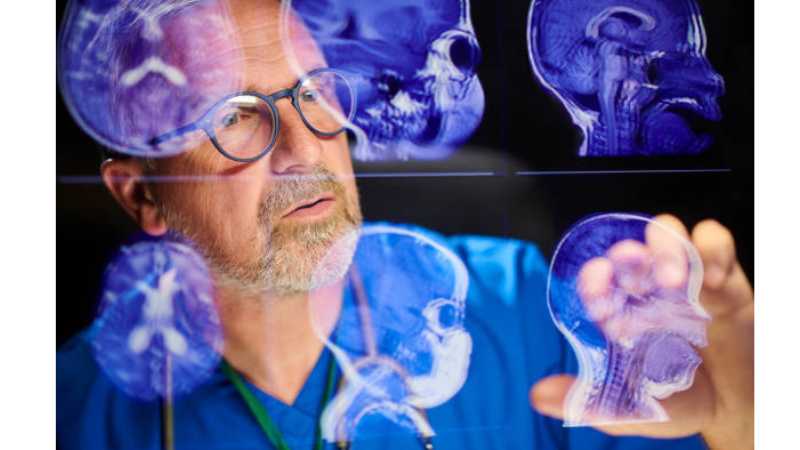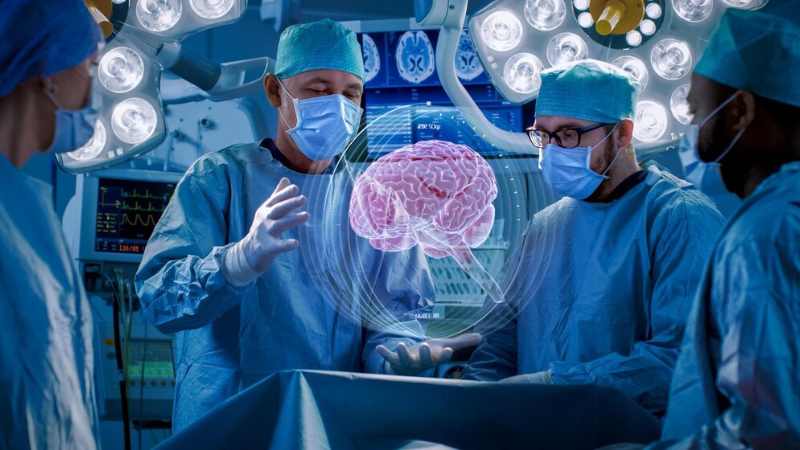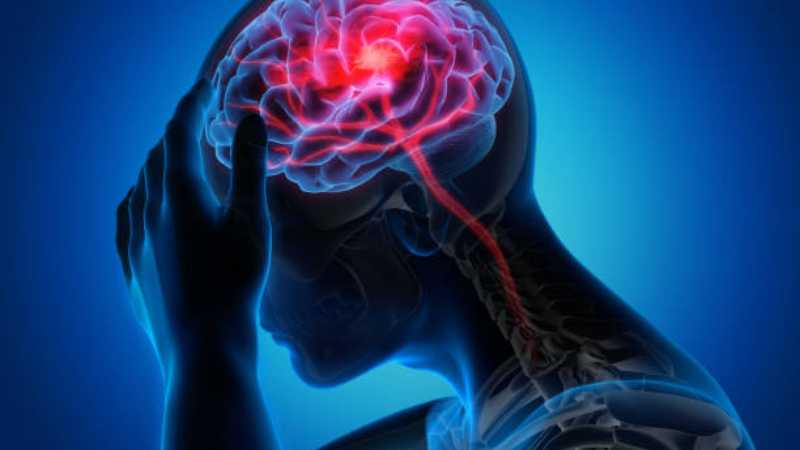As we stand on the threshold of 2025, the realm of neurology is on the brink of transformative breakthroughs. Neurological disorders like Alzheimer’s, stroke, epilepsy, and Parkinson’s affect millions worldwide, and their growing prevalence demands innovation, research, and collaboration. To address these challenges, Neurology Conferences 2025 offer essential forums where healthcare professionals, researchers, clinicians, and students converge to discuss cutting edge advancements, share insights, and explore future trends.

These conferences are far more than a gathering of minds; they are vibrant hubs of knowledge exchange, interdisciplinary collaboration, and visionary strategies that aim to tackle the complexities of neurological diseases head on. In this article, we’ll explore the importance of these events, the emerging trends in neurology, and a preview of the most anticipated conferences in 2025.
Why Neurology Conferences Matter in 2025
With the rise of neurological diseases and our evolving understanding of the brain, Neurology Conferences have never been more critical. These events provide a shared space for professionals to connect, learn, and push the boundaries of what is possible in neurology. Let’s delve into why these conferences are pivotal to shaping the future of neurological care.

1. Sharing Groundbreaking Research
One of the core components of any neurology conference is the platform it provides for researchers to present their latest work. Whether it’s pioneering research on neurodegenerative diseases or innovative treatment strategies for brain injuries, these presentations are invaluable for moving the field forward. Researchers can receive feedback from peers, engage in stimulating discussions, and potentially spark new collaborations that lead to further discoveries.
2. Building Networks with Like Minded Professionals
It’s not just what you know but who you know. Neurology conferences offer incredible opportunities for networking. Whether it’s connecting with leading figures in brain science or forming partnerships that lead to breakthrough research projects, these events create an ecosystem of collaboration that extends beyond national borders. Who knows? The person you meet over coffee at a neurology conference could be your next coauthor on a landmark study.
3. Learning from the World’s Best
Attendees at these conferences have the chance to learn from some of the brightest minds in neurology. Keynote speakers often include leading researchers, clinicians, and innovators who offer insights into cutting edge trends. From exploring the frontiers of brain machine interfaces to understanding the intricacies of neuroplasticity, these sessions provide practical knowledge and inspiration to attendees.
4. Hands On Learning and Workshops
In addition to academic presentations, conferences often feature hands on workshops. These interactive sessions allow participants to engage with new diagnostic tools, practice surgical techniques, or experiment with the latest therapeutic technologies. The value of these workshops is that they offer more than theoretical knowledge they provide real world skills that attendees can apply directly to their clinical practice or research.
5. Staying Ahead of Emerging Trends
The field of neurology is rapidly evolving, and staying updated on the latest trends is essential for healthcare professionals. Conferences offer insights into emerging technologies, novel treatment methods, and evolving research methodologies. Whether it’s artificial intelligence (AI) enhancing diagnostic capabilities or new biomarkers improving the treatment of stroke, attendees will walk away with actionable knowledge to apply in their work.
Emerging Trends to Watch at Neurology Conferences 2025
As we move further into the digital age, several exciting trends are shaping the future of neurology. The following areas are expected to be focal points at upcoming conferences, and they promise to drive the next wave of innovation in brain science.
1. Artificial Intelligence (AI) in Neurology
AI is revolutionizing healthcare, and neurology is no exception. Machine learning algorithms are improving diagnostic accuracy by identifying subtle patterns in brain imaging that even trained professionals might miss. These AI systems can also help personalize treatment plans based on individual patient data. However, ethical concerns regarding AI in medicine such as data privacy and the potential for algorithmic bias will also be hot topics at these events.
2. Telemedicine and Virtual Care
The COVID19 pandemic accelerated the adoption of telemedicine, and it’s here to stay. Neurology conferences in 2025 will likely focus on how telehealth is transforming care, particularly for patients with mobility issues or those living in remote areas. Virtual consultations and remote monitoring tools are not only making healthcare more accessible but also improving patient outcomes. Expect discussions on the challenges of delivering neurologic care online and the technologies that make it feasible.
3. Neuroplasticity and Rehabilitation Advances
Understanding the brain’s remarkable ability to reorganize itself after injury a phenomenon known as neuroplasticity—is unlocking new rehabilitation techniques. Researchers are developing therapies that encourage the brain to form new connections, which can help patients recover from strokes, traumatic brain injuries, or neurological diseases. Conferences will showcase cutting edge research into neuroplasticity and how it can be applied to rehabilitation.
4. Precision Medicine in Neurology
Precision medicine tailoring treatment based on an individual’s genetic makeup is becoming a game changer in neurology. By analyzing a patient’s genetic profile, clinicians can develop personalized treatment plans for conditions like epilepsy, ALS, or Alzheimer’s. This approach allows for more targeted therapies that improve patient outcomes and reduce adverse effects. Genetic testing and the role of genomics in neurology will be hot topics at these conferences.
5. Integrating Mental Health into Neurological Care
As research increasingly highlights the connection between neurological and psychiatric disorders, integrated care is becoming a priority. For instance, depression often coexists with chronic neurological conditions like Parkinson’s or multiple sclerosis. Conferences will explore how healthcare systems can better integrate mental health treatment into neurology to provide holistic care for patients.
Top Neurology Conferences to Attend in 2025
Several high profile events are scheduled for 2025, each focusing on different aspects of brain science and neurological care. These conferences offer unique opportunities for attendees to deepen their knowledge, expand their professional networks, and contribute to the advancement of the field.
1. 2nd International Conference on Neurology and Neurosurgery
- Dates: August 11–12, 2025
- Location: San Francisco, USA
- Register Here: Click
“Unlocking the Brain: Innovations in Healing and Understanding”
This conference will focus on the complex relationship between the immune system and neurological disorders, covering diseases like multiple sclerosis and Alzheimer’s. Attendees will have access to expert keynote presentations, hands on workshops, and panel discussions on the future of neurosurgery and immunotherapy.
Key Highlights:
- Expert Keynotes: Renowned neurosurgeons and neurologists will discuss breakthroughs in neuroimmunology and advanced surgical techniques.
- Workshops: Learn the latest brain tumor surgery techniques in hands on sessions led by top neurosurgeons.
Networking: Informal events and social gatherings to foster collaboration between attendees.
2. International Conference on Neuroscience
- Dates: June 23–24, 2025
- Location: Las Vegas, USA
- Register Here: Click
“Bridging Mind and Matter: Exploring the Neural Foundations of Behavior”
This conference will dive into the neural mechanisms that drive behavior and cognition, with sessions covering topics such as neuroplasticity, the neurobiology of emotions, and how environmental factors shape brain health.
Key Highlights:
- Diverse Sessions: From the neurobiology of emotions to brain plasticity, the agenda offers something for everyone in neuroscience.
- Workshops: Practical skills training on topics like neurofeedback and cognitive behavioral strategies.
- Research Presentations: Indepth poster and oral presentations by leading researchers in the field.
3. International Conference on Psychiatry and Mental Disorders
- Dates: September 22–23, 2025
- Location: Barcelona, Spain
- Register Here: Click
“Cognitive Convergence: Bridging Neurology and Alzheimer’s Research”
This event will bring together professionals working at the intersection of psychiatry and neurology, with a particular focus on Alzheimer’s and related disorders.
Key Highlights:
- Keynote Speakers: Explore the latest Alzheimer’s research and therapeutic strategies to combat cognitive decline.
- Workshops: Practical skills in managing patients with dual psychiatric and neurological conditions.
- Panel Discussions: Insightful debates on the future of Alzheimer’s treatment and diagnostics.
4. Stroke & Cerebrovascular Diseases Conference
- Dates: June 23–24, 2025
- Location: Sydney, Australia
- Register Here: Click
“Innovations and Advances in Stroke and Cerebrovascular Research”
Dedicated to the latest stroke management, this conference will highlight advances in prevention, acute care, and poststroke rehabilitation. Cutting edge research on biomarkers, imaging, and stroke rehabilitation will be showcased.
Key Highlights:
- Plenary Sessions: Hear from leading experts on stroke rehabilitation, acute stroke care, and innovative therapeutic strategies.
- Workshops: Hands on experience with new rehabilitation tools and stroke imaging technologies.
- Networking: Collaborate with international stroke specialists and researchers.
5. International Conference on Alzheimer’s and Dementia Diseases
- Dates: July 21–22, 2025
- Location: Vancouver, Canada
- Register Here: Click
“Global Perspectives on Alzheimer’s Disease”
This conference will unite leading experts to discuss innovative research, treatment strategies, and patient care methodologies for Alzheimer’s disease. Attendees will learn about the latest in early diagnosis and interventions aimed at slowing disease progression.
6. World Congress on Brain Disorders
- Dates: September 22-23, 2025
- Location: Berlin, Germany
- Register Here: Click
“Unraveling the Mysteries of Neurodegeneration”
Focusing on neurodegenerative diseases like Parkinson’s and ALS, this conference will provide a platform for indepth discussions on disease mechanisms, innovative treatments, and patient management strategies.
7. Annual Conference on Psychology Conference
- Dates: August 18-19, 2025
- Location: Toronto, Canada
- Register The Event:- Click Here
“The Intersection of Immunology and Neurology”
The Annual Conference on Neuroimmunology will focus on the relationship between the immune system and neurological disorders. Attendees will explore the latest research findings and therapeutic strategies that leverage this intersection.
Key Highlights:
- Keynote Lectures: Experts in neuroimmunology will deliver keynote lectures on topics such as autoimmune encephalitis, multiple sclerosis, and the role of inflammation in neurological disorders. These presentations will provide attendees with insights into current research and treatment approaches.
- Workshops: Hands on workshops will allow participants to engage in practical training on topics such as immunotherapy for neurological disorders and techniques for managing autoimmune conditions.
Recognizing Excellence: Awards at Neurology Conferences 2025
To foster innovation and recognize outstanding contributions to neurology, many conferences will feature prestigious awards, such as the Best Research Award, Young Investigator Award, and the Lifetime Achievement Award. These accolades celebrate the breakthroughs and dedication that are driving the field forward.
Conclusion
Neurology Conferences 2025 are more than just academic events; they are engines of change. By bringing together leading minds in neurology, these conferences provide a unique platform to discuss the latest research, collaborate on new projects, and, most importantly, make tangible advancements in the fight against neurological diseases. Whether you’re a seasoned professional or a budding researcher, these events offer valuable opportunities to learn, network, and contribute to the future of neurology.
FAQs
1. What can I expect from Neurology Conferences in 2025?
Attendees can expect a combination of keynote presentations, hands on workshops, panel discussions, and networking opportunities that focus on the latest research and clinical practices in neurology.
2. Who should attend these conferences?
These conferences are designed for healthcare practitioners, researchers, students, and anyone involved in neurological care or research.
3. How will AI impact neurology in the coming years?
AI is revolutionizing neurology by improving diagnostic accuracy, personalizing treatment plans, and predicting disease progression, all while raising important ethical considerations.
4. Why is precision medicine important in neurology?
Precision medicine allows for more personalized treatments by considering an individual’s genetic makeup, which can lead to more effective and targeted therapies for conditions like Alzheimer’s and epilepsy.
5. What are the benefits of attending a neurology conference?
Attendees gain valuable insights into the latest research, engage in professional networking, participate in workshops, and stay ahead of emerging trends that can directly enhance their clinical practice or research.



